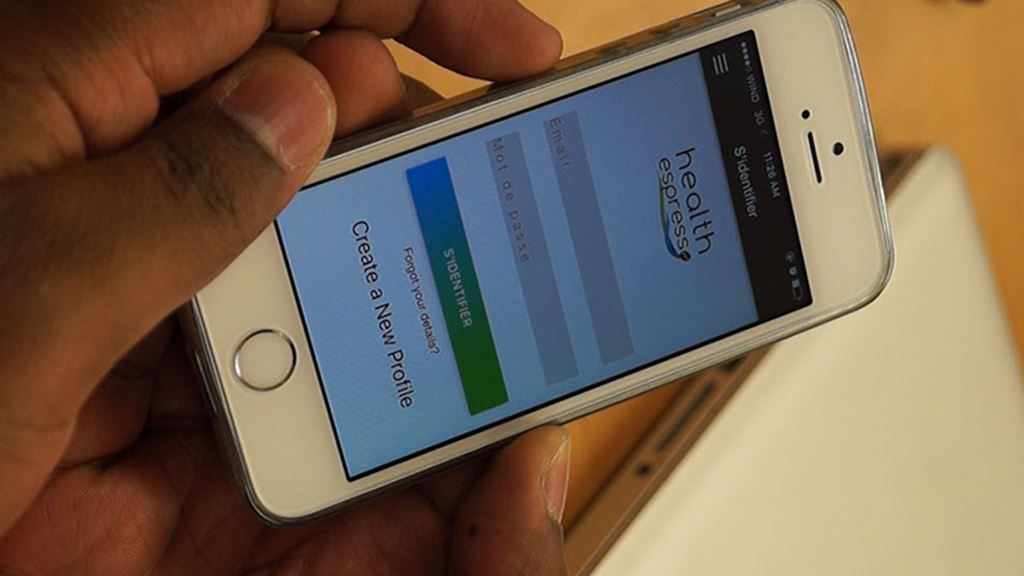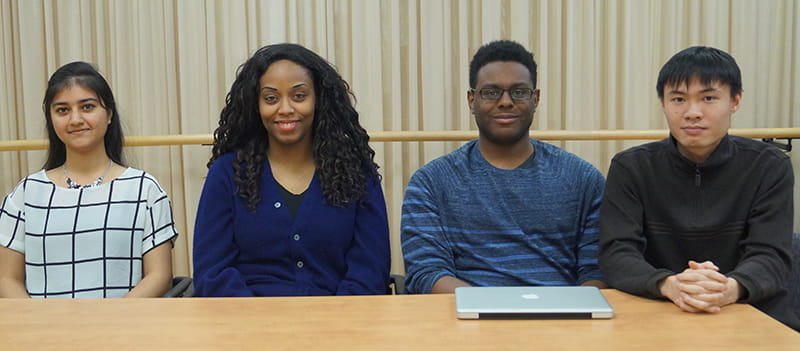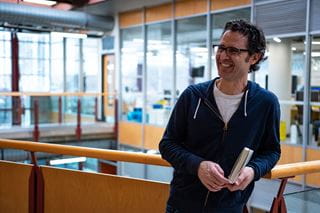
Health Espresso app serves up mobile health management
 by Keiko Kataoka – May 11, 2016
by Keiko Kataoka – May 11, 2016 A group of Sheridan Software Development Network Engineering students have partnered with the Sheridan Centre for Elder Research, Pharmaceutical Innovations Ltd. and iCare Home Health to develop a comprehensive mobile health and medication application. The hybrid app called Health Espresso tracks a wide range of information related to a person’s health including medications and their dosage, frequency of use and requirements for refill(s) and real-time body readings (such as heart rate and activity levels) all electronically, and is easily accessible by the patient and members of their support network.
If a support worker or hospital healthcare team needs to readily access patient information they can do so through the app while also monitoring patient history and other health indicators. The app is a valuable tool to assist a growing demographic of older adults who are dealing with chronic conditions, and will also make a meaningful difference for individuals who are visually impaired and/or recovering from accidents or injuries.
The three student developers – Harpriya Kaur, Nathanial Murray and Brian Tat – have been working on the application as part of a placement for almost 40 hours a week over four months. Shauna-Kay Jones, a fourth-year student and Keisha Alcott, a recent Sheridan grad, are working as project managers on Health Espresso, setting timelines, tracking progress and liaising with the students, industry partners and the Centre. The Centre routinely partners with industry to find solutions for issues facing older adults. Jones and Alcott were recruited for this opportunity based on their previous success developing a digital platform called Motify, which supports people on the autism spectrum.

Research that the group compiled with the help of Dr. Lia Tsotsos, Principal Researcher and Project Manager at the Centre, indicates a need for an app like Health Espresso. “We know that the majority of individuals over the age of 65 have at least one chronic condition, and at least 25 per cent of that age group is managing three or more conditions simultaneously,” says Tsotsos. Managing those conditions can mean taking multiple medications and coordinating across various sensors, readings and health care service providers. “By allowing users to track and manage their health in such a multi-faceted way, this app can begin to support preventative measures, and even help in the detection of critical events,” says Tsotsos, which supports the Centre’s work in the health promotion area.
“Currently on the market there are apps catered to aging populations to help with medications but they do not consider needs specific to people with visual impairments”
– Shauna Jones
For one of its innovative features, the app utilizes existing digital technology on medication bottles for the visually impaired called InteleChip. “Currently on the market there are apps catered to aging populations to help with medications but they do not consider needs specific to people with visual impairments,” Jones explains. The InteleChip stores data pulled from that technology via Bluetooth in the app on a page called Tracker. When it’s time to refill a prescription, an audio alert will sound. If the patient is out of town and needs a refill, the geolocation tool will use a combination of text-to-speech and speech-to-text prompts to help find the contacts of a nearby pharmacy.
To get Health Espresso to the desired stage of development for the stakeholders in just a few months’ time, the three students relied on effective teamwork strategies. “We divided up tasks and if anyone asked for help we didn’t shy away,” says Tat. Kaur focused on the front-end and user experience design, Google Maps and geotagging, Murray worked on writing code for medication tracking and the calendar function to monitor refill dates, and Tat concentrated on information storage and the speech-to-text functionalities. On occasion the group needed to learn new technologies in just a few days to implement them into the design. As first-time project managers Jones and Alcott focused on navigating the business side of the equation – managing requirements and negotiating with stakeholders – as well as ensuring the quality of the tools in the app, something they both agree wasn’t an issue given the skills and dedication shown by the developers.
The hard work of the students has paid off, according to Rick Menassa, President of iCare Home Health Services Inc. and Vice-President of Sales and Marketing at Pharmaceutical Innovation Ltd. “The students were nothing short of a perfect fit for the Health Espresso App team,” he says. “From the onset it was clear that Sheridan students’ hands-on experience and solid academic training are exactly what we were looking for – they were helpful in identifying problems and recommending solutions using their expertise.” iCare Home Health has a long-standing relationship with the Sheridan’s Elder Research and the Director of the Centre Pat Spadafora played an important role in engaging the Faculty at Sheridan to participate in this project.
“By leveraging the power of technology, and designing for a real industry need, the students are creating something that can be expected to bring a great deal of value to older Canadians”
– Dr. Lia Tsotsos
Murray, Tat and Jones will be graduating in June 2016 and reflect on the experience with Health Espresso proudly. “We developed a really strong portfolio piece and now have contacts in the industry,” says Murray. Kaur, who is returning to Sheridan for her third-year of studies, says she feels well-prepared. “I’ve been working with emerging technologies and now I can implement this knowledge in my capstone project next year.” Perhaps of even greater significance is the long-term impact their work may have on the community. Tsotsos says: “By leveraging the power of technology, and designing for a real industry need, the students are creating something that can be expected to bring a great deal of value to older Canadians.”
Pictured at top of page: The Health Espresso application
Written by: Keiko Kataoka, Manager, Communications and Public Relations at Sheridan.
Media Contact
For media inquiries, contact Sheridan’s Communications and Public Relations team.





